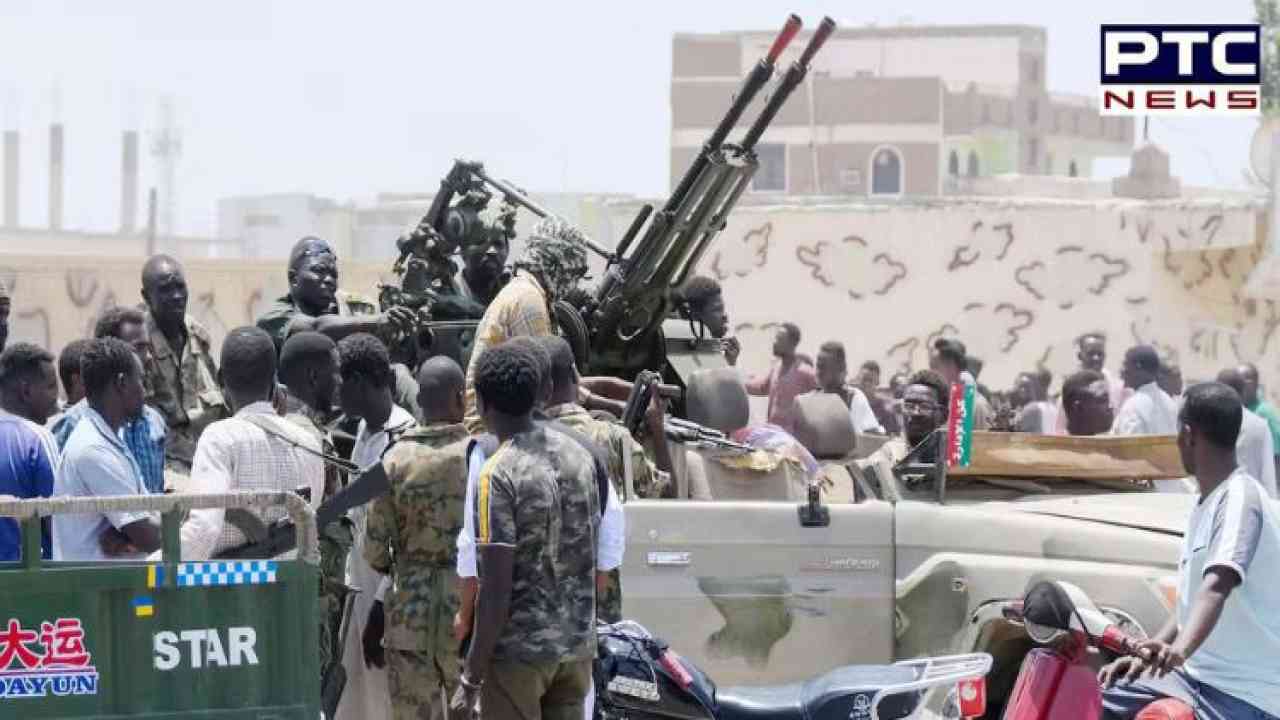

Explained: Reason behind Sudan conflict and what's at stake
In the aftermath of violent clashes between Sudan’s military and the country’s main paramilitary force, thousands of civilians have fled their houses in the country's capital Khartoum.
Death toll amid the clashes has surpassed 250 mark, with over 2,000 people injured, said World Health Organisation (WHO) officials citing Sudan's Ministry of Health Emergency Operations Center.
Reason behind the conflict
The violence occurred amid an apparent power struggle between Sudan's military regime's two main groups.
The Sudanese military forces are mainly loyal to Sudan's de facto ruler, Gen Abdel Fattah al-Burhan, but the Rapid Support Forces (RSF), a collection of militia, are loyal to former warlord Gen Mohamed Hamdan Dagalo, known as Hemedti.
The power struggle dates back to the years preceding the 2019 uprising that ousted the dictatorial ruler Omar al-Bashir, who built up formidable security forces that he purposefully pitted against one another.
When efforts to transition to a democratic civilian-led democracy faltered following Bashir's ouster, an eventual showdown seemed unavoidable, with diplomats in Khartoum warning of such a flare-up in early 2022. Tensions have been even higher in recent weeks.
Also Read | India overtakes China, becomes world's most populous country
The Power Balance
Sudan's military has been a dominant force since its independence in 1956. During the 2019-2021 power-sharing agreement, there was a lot of distrust between the military and the civilian parties.
The civilian side received credibility from a tenacious protest and international support.
The military was supported by rebel factions that benefited from a 2020 peace agreement, as well as veterans of al-Bashir's regime who returned to civil service following the coup.
The army regained control after the coup, but it was met with weekly protests, repeated isolation, and worsening economic hardships.
General Mohamed Hamdan Dagalo, head of the paramilitary RSF and deputy leader of Sudan’s ruling council since 2019, has backed the new transition plan, raising tensions with ruling council head and army chief Abdel Fattah al-Burhan.
What’s at stake
Sudan is located in a volatile region bordered by the Red Sea, the Sahel region, and the Horn of Africa. Its strategic location and agricultural richness have drawn regional power plays, complicating the odds of a peaceful transition to a civilian-led government.
Several of Sudan's neighbours have been affected by political upheavals and violence, notably Ethiopia, Chad, and South Sudan, and Sudan's relationship with Ethiopia, in particular, has been strained over issues such as disputed farmland along their border.
Significant geopolitical dimensions are also at work, with Russia, the United States, Saudi Arabia, the United Arab Emirates, and other states vying for influence in Sudan.
The Saudis and the United Arab Emirates see Sudan's transition as an opportunity to counter Islamist influence in the region.
They, along with the United States and the United Kingdom, comprise the "Quad," which has supported mediation in Sudan alongside the United Nations and the African Union. Western nations are concerned about the possibility of a Russian base on the Red Sea, which Sudanese military commanders have expressed interest in.
Also Read | Amit Shah calls for unity in tackling drug menace, pledges to make India drug-free by 2047
- PTC NEWS
